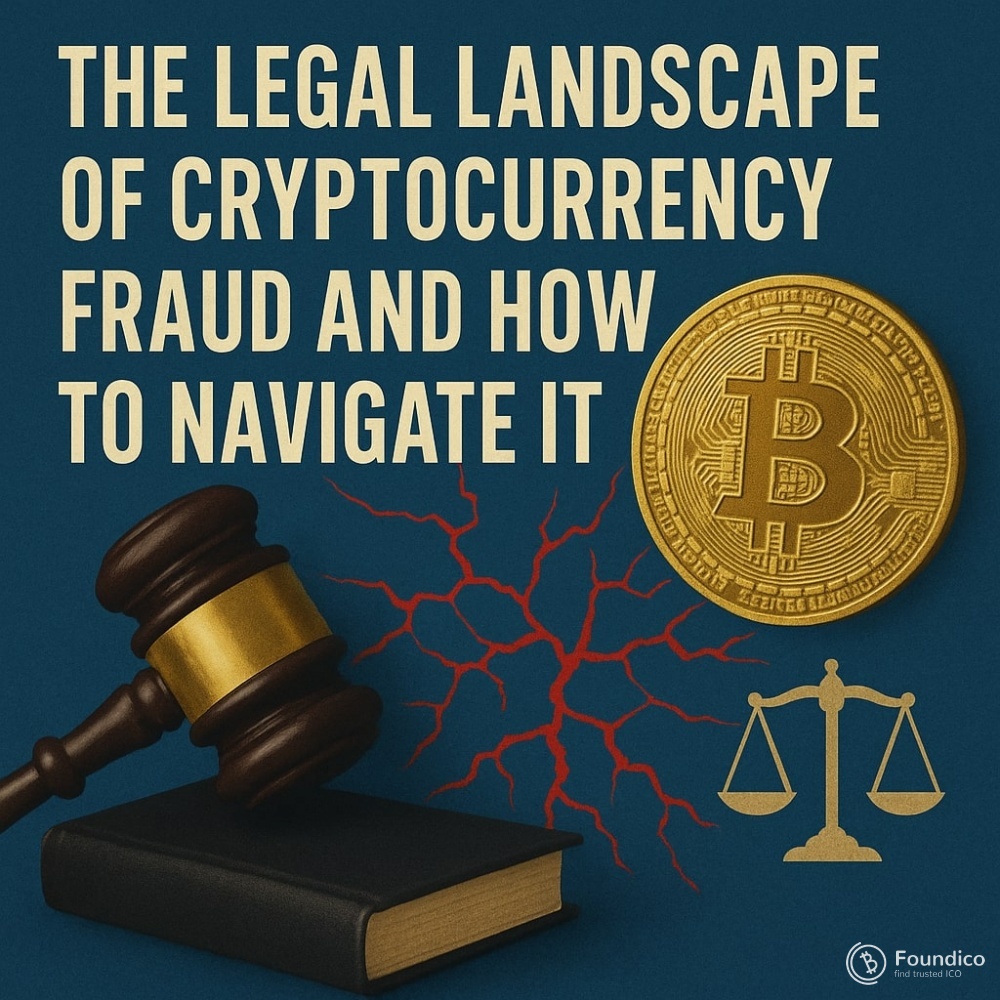The Legal Landscape of Cryptocurrency Fraud and How to Navigate It

By Dr. Pooyan Ghamari, Swiss Economist and Visionary
The rise of cryptocurrency has been nothing short of revolutionary, offering a new paradigm in finance and decentralization. However, with great innovation comes complex challenges—one of the most pressing being cryptocurrency fraud. As digital assets continue to grow in adoption and value, fraudsters are increasingly exploiting legal ambiguities and technological vulnerabilities to perpetrate scams. Understanding the evolving legal landscape surrounding cryptocurrency fraud is essential for investors, regulators, and financial professionals alike.
In this article, I will provide an in-depth exploration of the current legal environment of cryptocurrency fraud globally, examine the challenges it presents, and offer guidance on how to navigate this intricate domain effectively.
Understanding Cryptocurrency Fraud: Scope and Scale
Cryptocurrency fraud encompasses a broad spectrum of illicit activities, from Ponzi schemes and pump-and-dump manipulations to phishing attacks and identity theft. The anonymous or pseudonymous nature of blockchain transactions, combined with the rapid innovation of crypto projects, creates fertile ground for fraudsters.
Typical fraudulent activities include:
-
Initial Coin Offering (ICO) Scams: Where fake projects lure investors with promises of high returns.
-
Ponzi and Pyramid Schemes: Unsustainable investment programs paying returns to earlier investors using new investor funds.
-
Exchange Hacks and Exit Scams: Fraudulent exchanges that steal user funds or disappear suddenly.
-
Phishing and Social Engineering: Deceptive tactics to steal private keys or login credentials.
The global scale of crypto fraud is staggering, with losses reaching billions of dollars annually. This scale forces governments and regulatory bodies to act swiftly to protect consumers and uphold market integrity.
The Legal Landscape: An Evolving Patchwork
The legal framework governing cryptocurrency fraud is still in flux. Due to the decentralized and cross-border nature of cryptocurrencies, no single jurisdiction holds all the answers. However, several trends are emerging:
1. Regulatory Recognition of Cryptocurrencies
Many countries have moved beyond outright bans to regulate cryptocurrencies as either securities, commodities, or property. The classification affects which laws apply. For instance, in the United States, the Securities and Exchange Commission (SEC) often treats many tokens as securities, making ICO fraud subject to securities fraud laws.
2. Anti-Money Laundering (AML) and Know Your Customer (KYC) Requirements
To curb illicit use, jurisdictions increasingly mandate AML and KYC procedures on exchanges and wallet providers. These rules require identifying and monitoring users, thus limiting the anonymity that facilitates fraud.
3. Enhanced Enforcement Actions
Regulators worldwide are intensifying enforcement against fraudulent projects, scams, and unlicensed exchanges. Notable actions include criminal charges, asset freezes, and civil penalties.
4. International Cooperation
Given the borderless nature of crypto fraud, cross-border cooperation between law enforcement agencies and regulators is growing, enabling better investigation and prosecution.
Despite these advances, significant legal challenges remain. Jurisdictional ambiguities, lack of uniform definitions, and the pace of technological innovation outstripping legislation often leave gaps exploitable by criminals.
Navigating the Legal Complexities: Practical Guidance
For investors, businesses, and legal practitioners navigating this complex landscape, a proactive and informed approach is crucial. Below are key recommendations:
1. Due Diligence is Paramount
Before investing or partnering with any cryptocurrency project, conduct rigorous due diligence. Verify regulatory compliance, team credentials, and technology authenticity. Be wary of promises of guaranteed returns or overly complex schemes.
2. Understand the Regulatory Status in Your Jurisdiction
Laws vary widely across countries and even within regions. Understanding local regulations helps assess legal risks and rights in the event of fraud. Consulting specialized legal counsel familiar with crypto law is highly advisable.
3. Leverage Technology for Fraud Detection
Blockchain analytics and forensic tools can track suspicious transactions and help identify fraudulent behavior early. Utilizing these tools adds a layer of security and compliance.
4. Engage with Regulatory Bodies and Industry Groups
Participating in regulatory consultations and joining industry associations can provide early insights into regulatory changes and foster best practices.
5. Prepare for Legal Recourse and Reporting
In case of suspected fraud, promptly report to relevant authorities and preserve all transaction records. Legal recovery in cryptocurrency cases is challenging but not impossible with proper documentation and legal strategy.
The Road Ahead: Balancing Innovation and Protection
Cryptocurrency promises to redefine financial systems, but its potential must be balanced with robust protections against fraud. The legal landscape will continue evolving as lawmakers and courts interpret existing laws and draft new ones to address this novel domain.
As a Swiss economist deeply engaged in the global crypto ecosystem, I emphasize the importance of education, vigilance, and cooperation. Only by fostering an environment of transparency, accountability, and innovation can the promise of cryptocurrency be realized safely.
About the Author:
Dr. Pooyan Ghamari is a Swiss economist and visionary, specializing in financial innovation, blockchain technology, and regulatory economics. With extensive experience in both academia and industry, Dr. Ghamari advocates for balanced frameworks that support sustainable growth in the digital economy.

 BitcoinHyper - Bitcoin Hyper finally unlocks fast and cheap Bitcoin transactions by delivering the first ever Bitcoin Layer 2 blockchain.
BitcoinHyper - Bitcoin Hyper finally unlocks fast and cheap Bitcoin transactions by delivering the first ever Bitcoin Layer 2 blockchain.